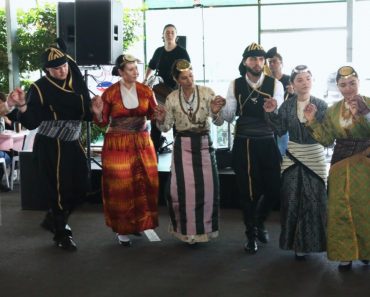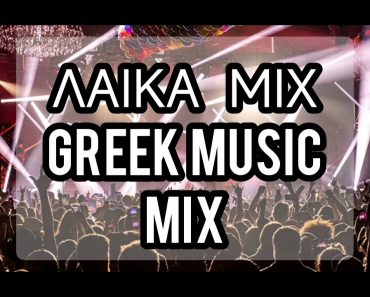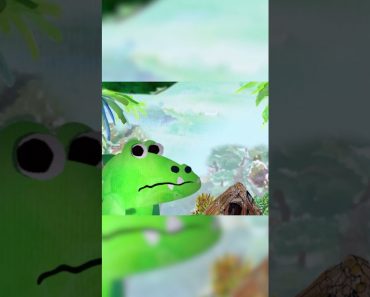I still remember a night at Northcote Town Hall, back in the early 2000s, when the legendary troupe WOGS OUT OF WORK / ACROPOLIS NOW served up a comedy revue sprinkled with philosophical garnish. In the middle of one of those faux-serious monologues designed to add ‘depth’, the Spanish-born member of the trio—yes, not the Greek one, but the darker, broodier Simon Palomares—announced with theatrical gravity that the migrant phenomenon of the Greek-Australian community was on its way out. Finito. Kaput. Thank you for coming, drive safely.
This caused a minor existential flutter. After all, Melbourne—proudly billed as the ‘third largest Greek city in the world!’—was still basking in the fading twilight of first-generation migration. And suburbs like Northcote were only just beginning their alchemical transformation from working-class Hellenic enclaves into real-estate El Dorado for their Australian-born heirs, who understood that nothing says ‘heritage’ quite like a million-dollar auction.
But let me return to the giggled-over and now ‘borrowed’ title—adjusted ever so slightly. Dimitris Hatzis, in The End of Our Small City, was diagnosing the changing social anatomy of Ioannina under capitalism’s unstoppable march. Drifting deep in that condition sometimes called ‘left-wing melancholy’—a fragile cocktail of hope, heartbreak, and heroic sulking—Hatzis mourned shattered expectations and the slow collapse of worlds that once felt eternal.
Cavafy, grand master of dignified decline, penned laments for diasporic colonies long before our local ones sprouted. His dry reminder— ‘I am Greek too. Not Hellene or Hellenising, but Greek’—was meant for Stratis Tsirkas (not our late Christos), yet the spirit holds: the Greek identity flares brightest where it is tested—geographically, culturally, politically, conflictually, and yes, diasporically. We excel at being Greek precisely when we’re not in Greece.
And so, our eternal affliction endures: obsessing over our Greekness. For every diaspora, identity becomes both hobby and homeland. A little chest-thumping, a little nostalgia, a pinch of invention, a spoonful of pride, and—voilà! —a community. Before long we turn into accidental patriots, indulging in hyperactive chatter and flirting with a version of nationalism so theatrical it could never quite take itself seriously. When your basic needs are met, what else is left but the great cosmic puzzle of who you really are?
But let’s get to the point: the community is fading. Of course, it is. This is not tragedy; it is biology. Some call it decline, optimists call it transformation, and bureaucrats call it ‘stakeholder transition’. Migration is a cycle of return—sometimes to memories, sometimes to myths, and, if you’re lucky, to Kefalonia in July. Generations shift, relationships shift, and eventually the bouzouki becomes decor.
But what is a community? Sociologists, who like definitions almost as much as Greeks like arguing with them, tell us that community is a group of people sharing the same space at the same time. Geography plus history equals belonging. It’s almost too simple. Yet there it is.
Now, back to our ‘little’ community. No need for grand theories—let’s consult the cold, unblinking face of Statistics. According to the 2021 census, 72.2 per cent of Greek-born residents are over 65, and another 14.4 per cent are aged 55–64. That’s 86.6 per cent of the first generation on the other side of fifty. In other words, the bell curve has gently but decisively turned into a hill. You can do the maths—or pour yourself a tsipouro and spare yourself the grief.
What binds us today as a Greek community? Origin? Language? Religion? Collective memory? A shared passion for feta? Take a look around. Our communal identity increasingly appears in museum exhibitions, anniversary events, and narratives of ‘the first Greek who…’ or ‘the last Greek woman to…’. Like a heritage trail curated by descendants who prefer good storytelling to good conjugation.
In truth, the ‘Greek community’ now resides mostly in identity—fluid, subjective, personal. Not better, not worse—just different. One of our enduring qualities, in my view, is our unapologetic honesty. We say what we think. Hypocrisy irritates us. We are ‘choked by fairness’, as the expression goes. We are dissenters by reflex, anarchists by temperament, and system-resistant by nature. Perhaps that is our true inheritance.
What pains me most, though, is the retreat of the language. Naturally, as the first generation steps aside, Greek retreats with them—not vanishing, but changing. It will be spoken as a second language, with emotional undertones and occasional grammatical improvisations. It will survive in classrooms, on university petitions, in poems, online posts, and in those earnest attempts at ‘Greek themes’ that would confound a native speaker but delight a folklorist. Greek media, meetings, and debates will inevitably shift to the first language of the children and grandchildren. At best—let’s not kid ourselves—we will remain bilingual.
So yes, without sentimentality, this community is ending. Or rather, completing its cycle. It was a product of its time—a wave of mass migration from the corners of a tested Hellenism. With the grit they brought and the luck they found, they built institutions, networks, and a history that was entirely their own.
We now live in its echo. A memory passed on, reshaped, relived by the second generation—nostalgic for a world they half-inherited and half-invented. No need for lamentation; this is simply life. Everything flows, as Heraclitus wisely muttered through his beard.
And please—when the very last compatriot switches off the lights—do close the door properly. It causes a draught. And με το συμπάθιο, we can’t afford another cold.
*Dr Michális S. Michael is an academic and author whose work spans international relations, conflict resolution, Australian foreign policy, interfaith and intercultural dialogue, as well as the Cyprus conflict. His research and teaching also explore contemporary Greek and Turkish history, politics, and society.






